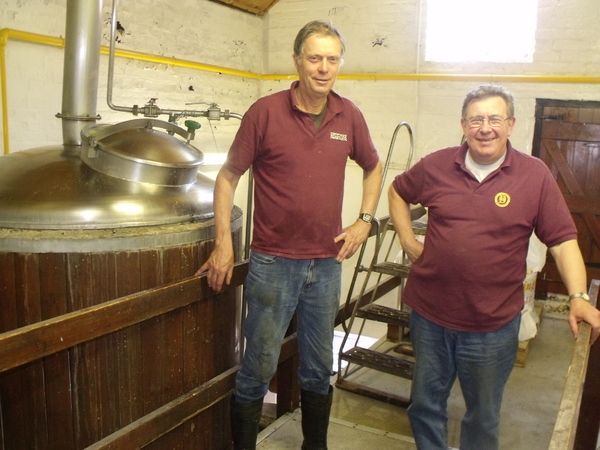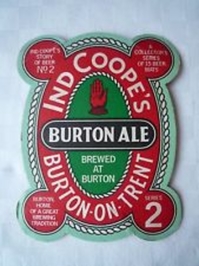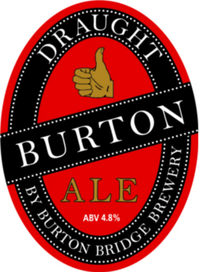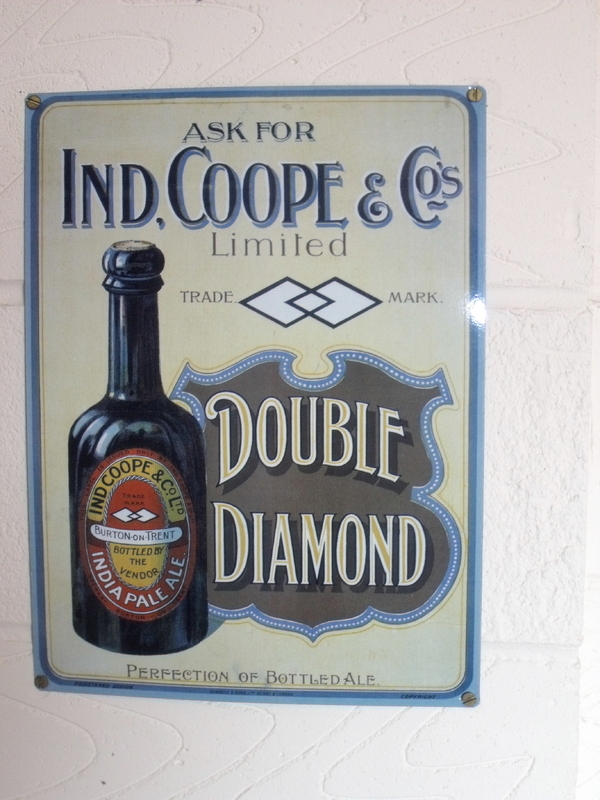Carlsberg & cask: remember Burton Ale?
Added: Tuesday, May 26th 2020

The merger of Carlsberg and Marston’s doesn’t spell the end of cask beer from the new group but there are understandable concerns: Carlsberg is the dominant partner and, with its Danish lager heritage, it has little interest in the real ale sector.
Marston’s won’t stop brewing Pedigree, Banks’s, Hobgoblin and other big cask brands. The world-famous Burton Union rooms, where Pedigree is fermented, are called the Cathedrals of Brewing and are surely sacrosanct.
But other cask ales may not be so lucky.
Carlsberg-Tetley emerged from the chaos of the old Allied Breweries group in 1991. The Tetley part of the name didn’t last long. Carlsberg closed the historic Leeds brewery in 2008 and Tetley Bitter was shunted off to Banks’s Brewery in Wolverhampton.
Carlsberg had another famous ale in its portfolio, Draught Burton Ale. Its treatment of the beer should set alarm bells ringing at Marston’s.
DBA, as it was known for short, was a major brand that had helped boost the real ale revival of the 1970s. The Campaign for Real Ale was founded in 1971 and it had an immediate impact. It revived the fortunes of a number of regional and family brewers that had considered closing their breweries as they found it difficult to compete with the Big Six nationals.
The Big Six were busily promoting such keg brands as Watneys Red, Double Diamond and Worthington E. But in 1976 Allied Breweries, made up of Ansells, Ind Coope and Tetley, launched a new cask beer, Ind Coope Draught Burton Ale (4.8 per cent), brewed at the Ind Coope plant in Burton-on-Trent.
Allied had planned to serve DBA in a few hundred pubs but the beer became an overnight sensation. As a result, the group decided to install it in thousands of pubs in its 6,600 estate. Many of the pubs no longer had the necessary equipment to serve cask beer. As a result, Gaskell & Chambers, the major manufacturer of beer engines and handpumps, put its Birmingham workforce on permanent overtime to cope with demand. Allied had to send head office staff to its pubs to train publicans and bar staff in the skills of cellaring and serving cask beer.
The group had a major success on its hands. It responded by promoting DBA and producing a series of distinctive beer mats with Mickey Mouse ears that were distributed to thousands of pubs. The mats gave information about the beer and the history of brewing in Burton and became collectors’ items.
The high demand for DBA encouraged the other national brewers to back cask beer. Bass, for example, rekindled its support for the likes of Draught Bass, Charrington IPA and Stones Bitter. Even the reviled Watneys developed an interest in cask, launching new beers that were stored in converted kegs as the company had dumped all its casks during its fervour for Red keg.

The quality of DBA was underscored when it was named Supreme Champion in CAMRA’s annual Champion Beer of Britain competition in 1990. It remains today the only beer produced by a national brewer that has ever won the accolade.
But the beer was caught up in a bizarre tangle that saw Allied Breweries merge first with J Lyons to become Allied Lyons and then with the wine company Pedro Domecq to become Allied Domecq.
In 1996 Carlsberg-Tetley emerged from this debacle and it switched the production of DBA to Leeds. At a stroke, the beer had lost its Burton heritage.
But worse was to follow. Carlsberg busily promoted a keg version of Tetley Bitter, which it turned into a national brand. It needed all the capacity available at Leeds for Tetley and DBA was sent off to be contract brewed in Manchester by JW Lees.
The number of outlets that sold the beer dwindled. Finally in January 2015 Carlsberg put DBA out of its misery. It said it was killing the brand as “demand had fallen to an unsustainable level” – hardly surprising as neither a penny nor a Danish krone was spent promoting it and it was almost impossible to find.
Reprieve was swift. In February of that year, Geoff Mumford and Bruce Wilkinson at the Burton Bridge Brewery announced they planned to brew a batch of a beer called Draught Burton Ale for the local CAMRA beer festival the following month. They are pictured above, Bruce on the left.
It was fitting they should brew the beer as Geoff and Bruce had worked for Ind Coope at both the Romford and Burton plants and they had been involved in devising the recipe for the original DBA. They said the beer was based on a strong version of Double Diamond called Export: Double Diamond started life as a cask ale and was labelled India Pale Ale.

Geoff and Bruce said they would brew their beer as close as possible to the original recipe of pale malt with a touch of chocolate malt, liquid sugar, English hops and Styrian Goldings for dry hopping in cask.
The brewers produce a beer mat that carefully avoided looking too much like the old DBA versions but, tongue-in-cheek, the thumbs-up sign was not too dissimilar to the famous Red Hand trademark of the Burton brewer Allsopps that merged in 1934 to form Ind Coope & Allsopp.
Geoff and Bruce took legal advice as they didn’t fancy being sued by as company the size of Carlsberg. But lawyers told them they had little to worry about as Burton is a generic term and neither Allied Breweries nor Carlsberg had sought a “protected geographic indicator” from the European Union, similar to a wine appellation.
The Burton Bridge beer was the star of the local beer festival and pubs in Derby demanded supplies. It was meant to be a one-off or occasional brew but is now a regular member of the Burton Bridge portfolio. But it will never have the wide coverage made possible when it was owned by a national brewer.
Carlsberg’s treatment of DBA raises further concerns over the future of an even more famous and historic beer, Draught Bass. Bass left brewing in 2000 and sold its breweries. As a result Draught Bass is now owned by the world’s biggest brewer AB InBev. The beer is brewed for the global giant by Marston’s in Burton.
Carlsberg may not be happy that its new partner is doing contract work for its arch global rival, AB InBev. If the contract ends, there may not be another brewer in the country with the capacity to take it on.
Carlsberg should make a statement soon about its commitment – or lack of it – to one of our great historic brews.






